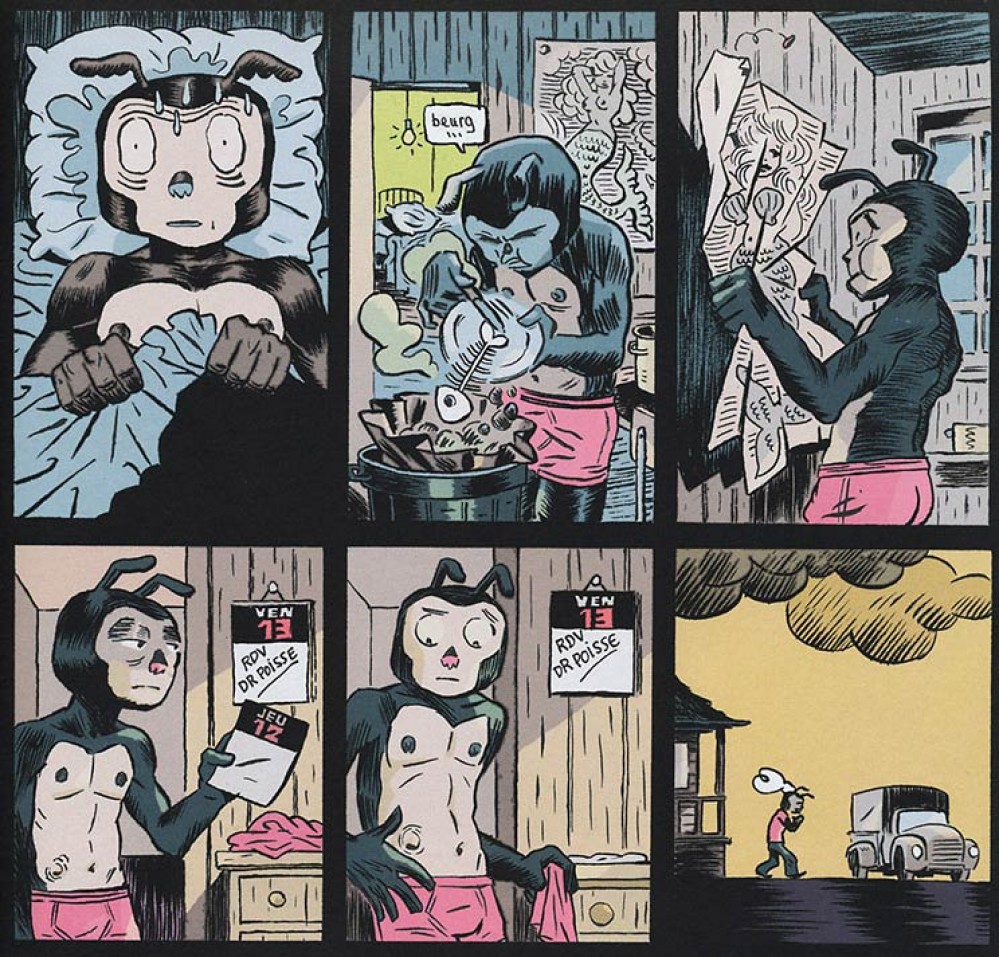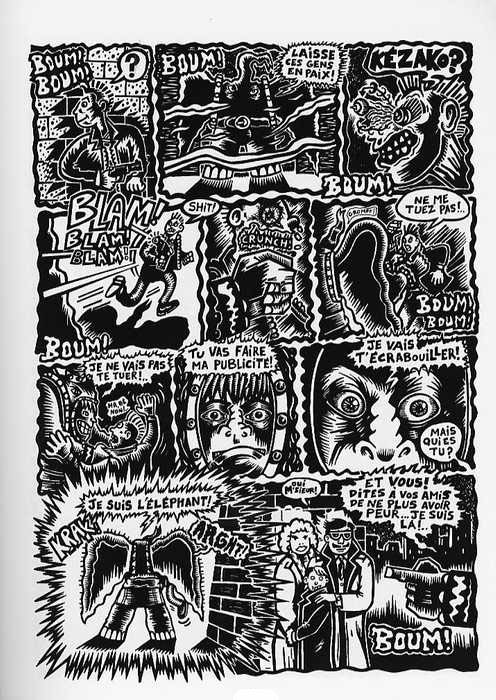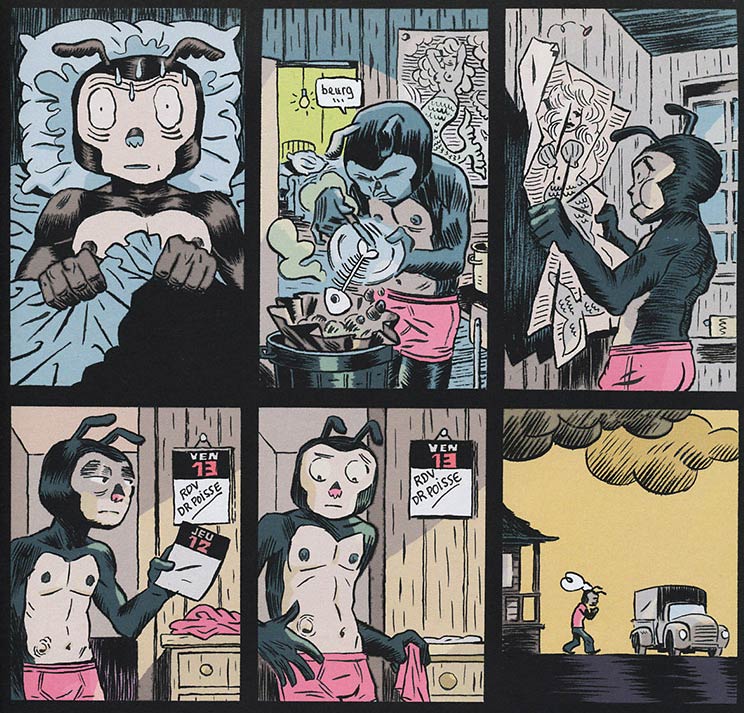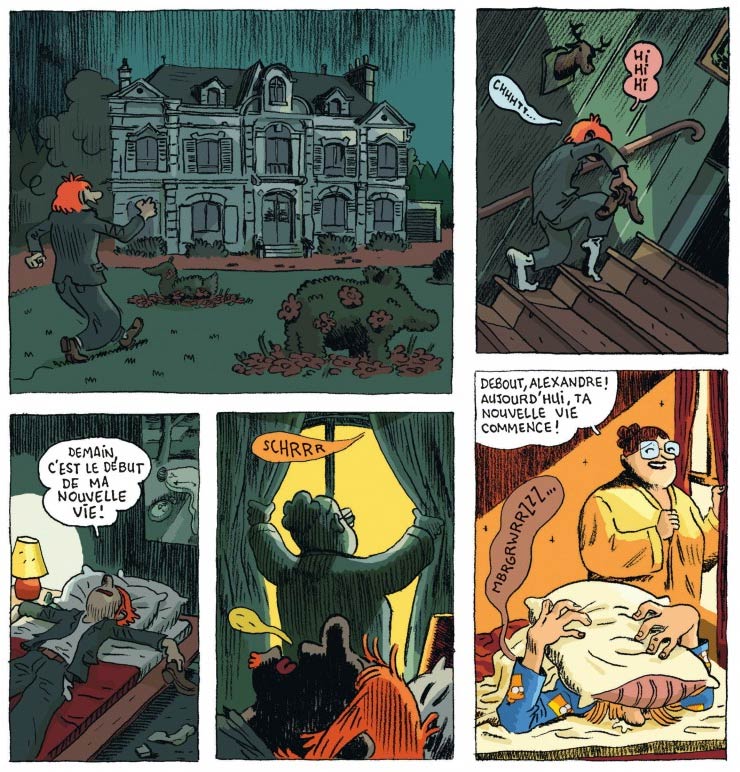'Muerto Kid'.
Nikola Witko was raised in Maubeuge in the north of France in the 1970s. He went to Tournai (Doornik) in Belgium for his studies in Fine Arts. He founded the Hécatombes collective in Brussels in the 1990s, and began contributing to several fanzines. He released comix with small publishing labels, like Brükt Productions ( 'L'Enfant-nuit' and 'L'Homme Est-t-il Con?') and Pas de Chance Editions ('Fulbert Cervo'). He eventually also saw his work published in reviews like Jade (by 6 Pieds Sous Terre), Lapin (by L'Association), Bile Noire (by Atrabile) and Ferraille (by Les Requins Marteaux). Witko specialized himself in ironic and sadistic fables in black and white.
In 2000, Witko created the first comic adaptation of Jean Bernard Pouy's novel series 'Le Poulpe' with the book 'La Petite Écuyère a Cafté' (6 Pieds Sous Terre). He has released several books with French publishers of alternative comics. At Les Requins Marteaux, his body of work includes 'Freeze, Punks!' (2001), 'Les Bijoux de Famille' (two books with art by Christian Papazoglakis, 2001-2002), 'L'Homme Qui Ne Valait Plus Rien' (2003), 'Le Procès des Sœurs March' (2004) and 'Muerto Kid' (2006). He was also responsible for the artwork in the 'Professor Furia' features in Jerry Frisen's anthology series 'Lucha Libre' at Les Humanoïdes Associés.
Witko made the humor comic 'Comment Je Suis Devenu Stupide' (2004) with Martin Page at 6 Pieds Sous Terre, and was present at Éditions Carabas with 'Kosmo' (2005) and 'Willy Baraka' (2007). He teamed up with Jerry Frisen and Jean-Luc Cornette for two books about young and modest plastic artist Alexandre Pompidou at Le Lombard in 2012 and 2013. His comic 'Rustin' was published by Aaarg! in 2014. He worked with Claude Comète (Jorge Bernstein) on the sci-fi humour comic 'Space Sérénade' for Audie/Fluide Glacial (2015), and with Nena on the small-format comic book 'Chateaubriand - Au Nom de la Prose' at Vide Cocagne (2016).






